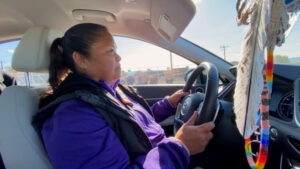
UPDATE: A cancer survivor is urgently seeking support as she faces a challenging situation with her daughter, who moved in four years ago after her leukemia diagnosis. Now in remission, the survivor finds herself overwhelmed, as her 44-year-old daughter contributes little to household responsibilities.
In a heartfelt letter to Slate’s Care and Feeding column, the mother expressed her exhaustion, stating: “I’m better now, but my daughter is making recovery so much worse.” After enduring extensive chemotherapy, she struggles to manage both her health and the additional burden of her daughter’s presence, which she feels is counterproductive to her recovery.
The daughter, who has a full-time job, leaves behind dirty dishes and laundry, creating a stressful environment for her mother. Despite the mother’s pleas for support, her husband disagrees about the need for their daughter to move out. This disagreement adds to her frustration, as she feels trapped caring for both her daughter and her daughter’s dog while trying to focus on her health.
Why this matters NOW: The emotional and physical toll of caregiving can be significant, especially for someone recovering from a serious illness. The mother’s situation highlights the complex dynamics that often arise when family members live together under challenging circumstances. As she navigates her recovery, the need for clear communication and boundaries becomes paramount.
In her response, advice columnist Allison emphasized the importance of partnership in addressing this issue. She noted, “You need help with your husband!” She suggested that the mother and husband must engage in open discussions to align on their home life and what they envision for their future.
Communication can pave the way for effective solutions, particularly when it comes to setting expectations for household contributions. The mother is encouraged to confront her daughter about her responsibilities, reinforcing the need for shared effort in the home.
As emotional strains mount, this evolving situation raises broader questions about caregiving roles and the impact of family dynamics on recovery. The mother’s plea serves as a reminder of the intricate balance between support and independence, especially in times of health crises.
Her story resonates with many who face similar struggles, making it a compelling topic for discussion and sharing. Readers are urged to reflect on their caregiving experiences and consider the importance of mutual support in family dynamics.
Next steps for the mother include engaging her husband in crucial conversations, setting a timeline for her daughter’s transition back to independence, and prioritizing her own well-being in the process. This urgent family situation is a call to action for anyone navigating the complexities of caregiving, health, and family relationships.





